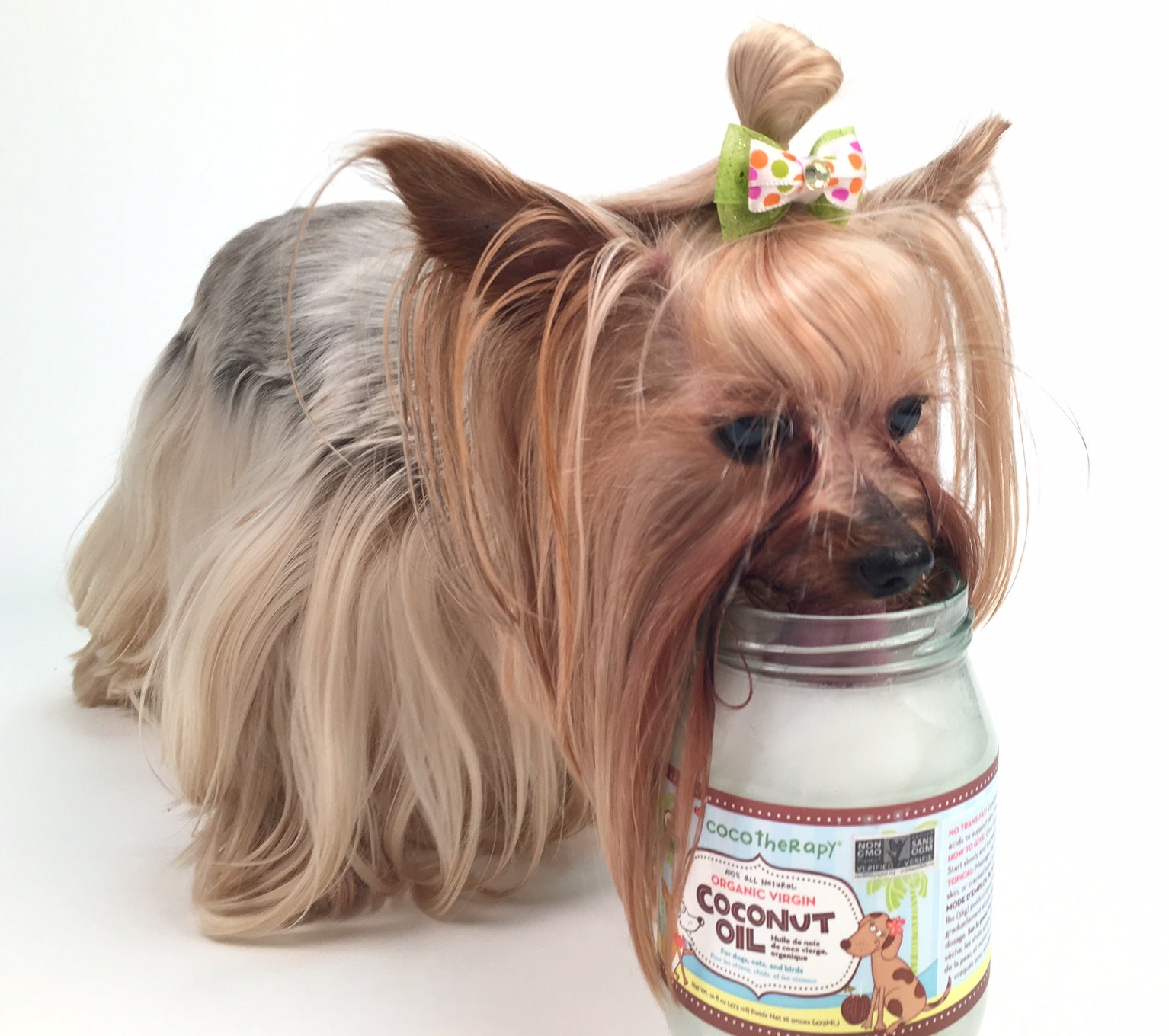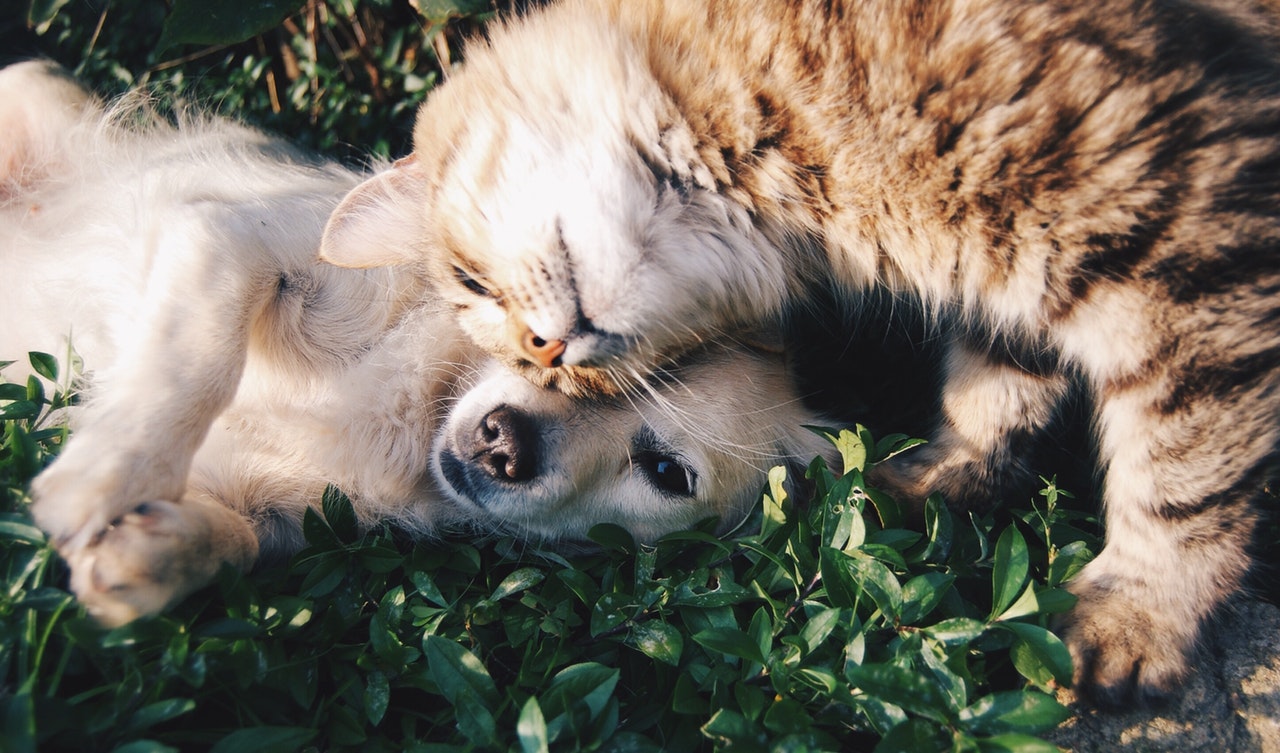Did you know that the majority of pet foods on store shelves are essentially fast food for pets?
For years, the big pet food companies have marketed their products as the perfect solution to meet your pet's dietary needs. Commercial pet foods are convenient, inexpensive, and cleverly packaged to appear nutritious and healthy. But take a closer look, and you may be surprised to find out what ends up in your pet's food.
The truth is that most commercial pet foods are processed and packed full of cheap ingredients and fillers. To make the food more appealing to pets, manufacturers add artificial colors, flavors and flavor enhancers. And to extend the food's shelf life, chemical preservatives are added.
The poor-quality ingredients in these foods can cause a huge range of health problems for your pet over its lifetime. Part of the reason these foods continue to sell so well is that pets are resilient creatures, and can survive on a poor-quality diet over the short-term.
The real danger to your pet is from illness and disease that occurs as a result of continually ingesting dangerous chemicals and ingredients for an extended period of time. That's why it's so important to feed your pet a diet that's species-appropriate, nutritionally balanced, and free from dangerous chemicals and low-quality filler ingredients.
In today's post, we'll look at the importance of choosing a species-appropriate diet that your pet will thrive on. We'll also show you how to select the right diet for your pet, and the benefits of supplementing with therapeutic coconut oil to support optimum health.
The Importance of Species-Appropriate Foods
To make healthy choices for our pets, it's essential to have a basic understanding of the way their bodies are designed. Modern-day dogs and cats are domesticated, but their genetic makeup remains essentially the same as their wild ancestors.
Dogs are classified by scientists as omnivores, and cats as strict carnivores. Both animals require meat in order to thrive, and cats cannot survive without some form of meat in their diet.
The bodies of cats and dogs provide huge clues to the diets they require. They have sharp teeth designed to rip and tear flesh, and short digestive tracts that rapidly digest their food. The manufacturers of processed pet foods ignore these facts, filling their foods with cheap, biologically inappropriate ingredients your pet's body has trouble digesting.
There are a great many negative consequences to this shift away from a species-appropriate diet. Heart, liver and kidney disease are now epidemic among pets, obesity is on the rise, and cancer is now the leading cause of death for dogs and cats.
The best foods to feed your pet are living, raw, fresh and species-appropriate. These foods support your pet's health throughout their lifetime, and protect them from illness and disease.
In recent years, many experts have debunked the myths surrounding the dangers of a raw food diet. Raw food has finally entered the mainstream, and an increasing number of pet owners have introduced their pets to species-appropriate raw food diets.

How to Choose a Species-Appropriate Diet for Your Pet
These days, it's actually quite simple to choose a species-appropriate raw food diet that will keep your pet happy and healthy for years to come.
Your pet can thrive on both a home-prepared diet and a high-quality commercial diet. To help you decide which is best for your situation, here's an overview of each type of diet ...
Home-Prepared Diets
A good home-prepared diet should be nutritionally balanced and complete, and contain all the necessary vitamins and minerals your pet needs to stay healthy. Lots of veterinarians are against home-prepared pet food because of the danger of inappropriately balanced diets that can pose a threat to health.
Despite this, it's possible to prepare a balanced, species-appropriate raw food diet at home. A good diet should consist of ingredients such as muscle and organ meats, raw eggs, and fresh fruits and vegetables.
It's always important to conduct thorough research before introducing your pet to a new diet, and in the case of home-prepared diets, it's a good idea to consult with a veterinary nutritionist who can review the diet and make sure it meets your pet's dietary needs.
Commercial Diets
If you don't have the time to make your own pet food at home, there are now many excellent commercial diets on the market. Species-appropriate commercial diets are popular with many pet owners. They can be more expensive than home-prepared diets, but they're easy to store and use, and are carefully formulated to be nutritionally balanced.
When choosing a species-appropriate commercial pet food, it's important to do your homework to make sure the food is nutritionally balanced. Pay particular attention to the list of ingredients on the packaging. Look for foods with a high-quality protein source as the main ingredient, and avoid those with low-quality filler ingredients such as corn, meat by-products, and artificial and chemical preservatives.
Supplementing Your Pet's Diet With Coconut Oil
Coconut oil can be used as a dietary supplement, and is beneficial to overall pet health.
Therapeutic coconut oil has anti-inflammatory, antibacterial, antiviral, and antifungal properties that prevent infection in your pet's body. The medium chain fatty acids (MCFAs) in the oil also support your pet's well being and maintain healthy body functions.
Benefits of coconut oil on pet health include improved skin and coat health, a more robust immune system, better metabolic function, and a healthier digestive tract.
When supplementing your pet's diet with coconut oil, be sure to choose a therapeutic-grade oil such as CocoTherapy coconut oil. Our oil is sourced from our USDA-certified organic family farm in the Philippines and made in our own facility. It’s high in lauric and caprylic acid - the MCFAs known to support your pet's overall health.
For more information on the benefits of supplementing your pet's diet with healthy oils such as coconut oil, please visit our website.



